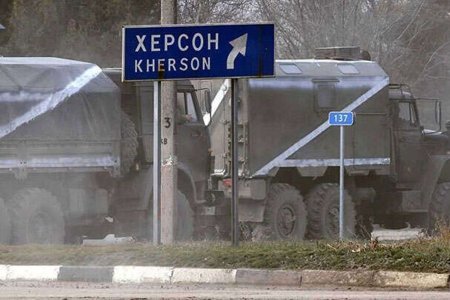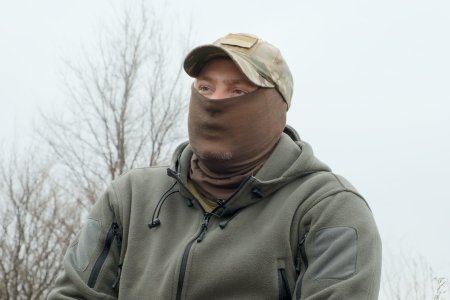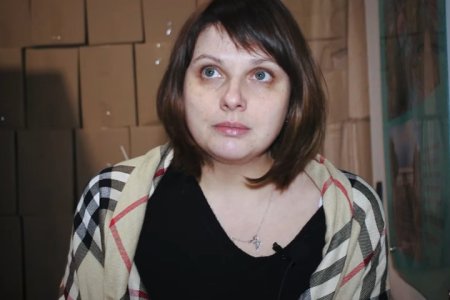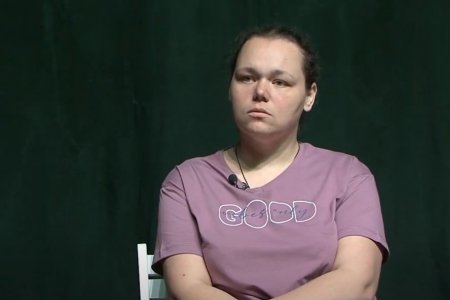I met the beginning of war being 32 weeks pregnant. The full-scale invasion shocked me because I was pleasantly busy thinking about the future child and not even watching all the media. Needless to say, I didn’t even guess this could happen. February 24th was very difficult, but, as it turned out, not the most difficult ...
My husband and I live three kilometers (maybe a little further) from the Mykolaiv airfield “Kulbakyne”, which was bombed. Therefore, on the 24th, I woke up from flashes and trembling window panes. My husband jumped up and started to dress, but I didn’t understand anything. I say: “Sergey, where are you going?”. And he: “I’ll go and see, maybe it’s thunder.” He ran out, saying: “Sit on the bed!"
However, I got up, opened the window, and saw the glow. I realized what it was and I thought: This is it! I was alone for almost half an hour when suddenly the shelling began again. Now I know that our air defenses reacted. But I clearly remember the moment when I sat in the bathroom on the floor and cried. I was so scared, and there was such an explosive mixture of emotions! I was furious that I chose such a time for the birth of a child. It was just beyond words.
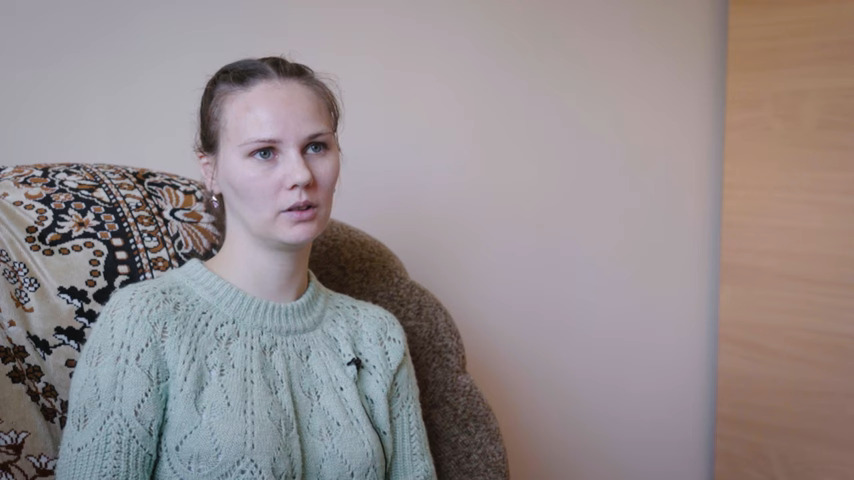
My husband returned, and we decided it would be safer in the hospital where we work. At about 9-10 in the morning, we were already there. The hospital administration agreed that I would be there for some time, no matter what happened: the child and I could be helped there. Over time, we brought some things and began living in the medical department ward where my husband worked (he is a pediatric traumatologist). We lived in a hospital.
One of the most challenging nights was from February 25 to February 26, 2022. That night we sat in the basement from six in the evening until six in the morning. It was a day when our city was stormed from all sides.
Unfortunately, it was not a bomb shelter but a basement. But it was deep enough, so we did not hear the usual artillery shelling (which was somewhere far and not directly near us). Moreover, there were all the departments, all the children, and all the equipment. However, on the 25th, we heard everything: all the explosions.
You can imagine: this is a surgical building with two intensive care units — newborns and older children. That is, from 1 month to 18 years. There were surgical, traumatological, and somatic departments. At that time, our doctors were still accepting everyone nearby (because not all bomb shelters were ready). Therefore, the hospital took everyone. There were two rooms: one, probably 20 by 15 meters, and the second — 10 by 15 meters. And there were about 150 people in this room.
On the third day, the administration decided that all our children (patients) would be permanently in the basement because there was no way to evacuate them quickly. Plus, it was the intensive care unit. One thing is the resuscitation of premature babies when you can grab and carry the baby. But what to do if the child is as tall as you, or even taller? And also all the equipment ... It isn’t easy. So the children stayed in the basement. There, they posted nurses from each department at the corners. What was impossible to organize in the basement was done on the ground floor in the interior (also according to the two-wall rule). For you to understand, they reequipped the utility rooms (into the emergency room) because the doctors also wanted to feel safe.
Have you witnessed shelling and civilian casualties?
There were shellings, “Grads” [rockets], cluster shells frequent bombardment. While I was living in the hospital, Peremohy Square was shelled (this was a transport infrastructure hub in our area, not far from the hospital). There were shops, many transport stops, kiosks, and a small market. And they were all shot at.
My husband helped all these people because (by the rules) the ambulance takes critical patients to the first point (to the first hospital nearby). So our hospital was the first. I don’t know how many people were brought that day. But a lot! To help everyone, four traumatologists, and four anesthesiologists worked.
Not everyone was saved. Some were no longer brought. Also, there was no one to carry.
Some were brought to us, but I was not allowed to see them because they worried about me too. So I didn’t see them. But I saw the injured children who had already been operated on and left for treatment with us.
One of them was a girl, Alina (I don’t know her last name). She had a complicated hand injury: several fragments were removed. She had a damaged nerve and a nasty fracture: she could not move her fingers. For you to understand, the shell flew into her room in a private house. Nothing happened to her mother because she was in her bedroom, but the nursery was damaged. The room was destroyed.
We slept in neighboring beds and often talked: I had my bed, and the girl with her mother had their own. It was scary when at night she screamed. For two weeks, the child screamed at night. Our hospital was also shelled during these two weeks: I don’t remember the date. I think 4 April. It was already warm enough. Until then, I had not considered leaving the city because I knew (or thought) that the hospital was safe. But at that time, information about Irpen and Bucha began to emerge. There was also news about the shelling of a maternity hospital in Mariupol.
These were the first signals that the enemy had no scruples. The shelling of our hospital was the last straw.
I was sitting on the second floor, painting a picture to calm down. The husband was in the operating room on the seventh floor. It was the highest floor. He worked with colleagues, operating on someone. I don’t know who because there were plenty of children then. Then I heard a loud explosion. I realized that it was somewhere nearby. Very near. When a “Caliber” [cruise missile] hits, the same which flew into our Regional State Administration, the windows tremble, and everything shakes under you.
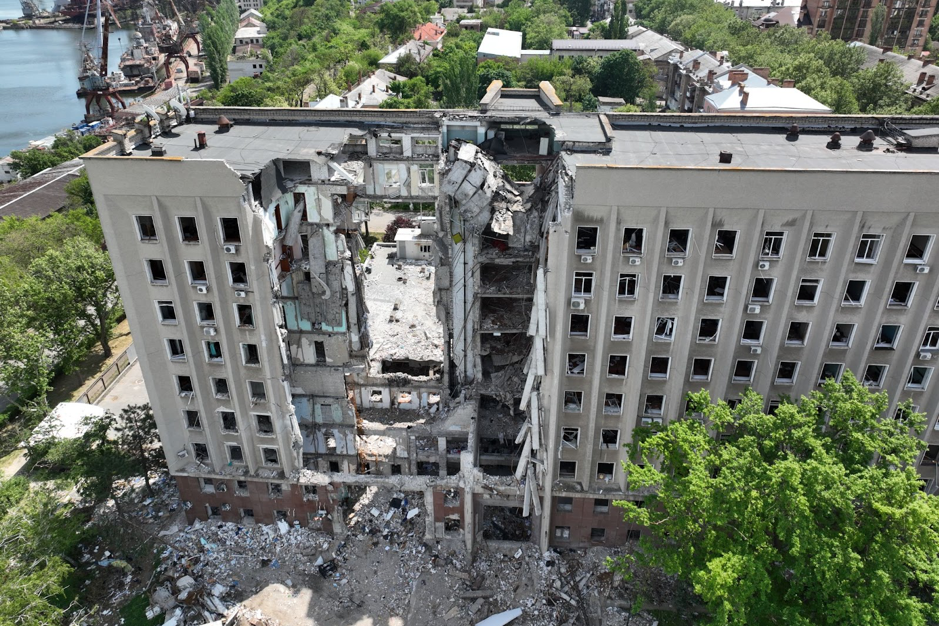
And when artillery fires all these “Grads” — it’s loud, and you can hear a clap. It was a clap, but everything shook, and I realized this was close. With such a belly, I jumped up quickly and ran out into the corridor. I heard another explosion. I was standing in the hallway, but I had a two-wall rule, and I didn’t know whether to move or not. Because if I go, I will enter the hall with windows on both sides. I felt like being at a crossroads, but a nurse came up and said: “Sasha, let’s move on."
We went on, ran through the hall, and turned the corner — another explosion. Again we hid according to the rule of two walls. Then we went down the stairs, but there were also windows everywhere. Those 15 seconds of descent… It was just awful. We found strength in ourselves, more people came up (five people), and we began to descend further. And as soon as I crossed the threshold in the foyer of our hospital (we also have glass doors there — a façade with stained glass), I understood what had hit the building — all the windows began to crumble.
Three men were in front of me; one was our head physician, and they fell to the floor. And where do I fall with my belly? Thank God there were two columns. There was a column and an alcove where a wall began, and with my belly first, I dove into this alcove.
There was only one thought in my head: “Just not in the belly: if they hit me, then at least the child will be saved.”
These were my thoughts. Then it quieted down some, and the head physician led me around the corner. Once we came around the corner, I sat on the floor and started crying. Then, the duty nurse came running and said: “Oleksandra Anatoliivna. It flew over your head! It broke through the window and passed a few centimeters away from you!”
My husband was still on the seventh floor in the operating room. There were windows too. I understood that the missiles just flew all over the territory, everywhere. I couldn’t call him, and I was sitting, crying. To go down to the basement, you need to go up the stairs, and there was also a window. And it was completely broken. It hit five meters from this window. I thought: “Where to go? Should I go?"
Finally, they took me to the basement. I sat, crying downstairs with this girl Alina. She was also crying because her mother had gone to the store. We were crying, not knowing what to do. Then I tried to calm her down. Finally, they stopped shooting, and my husband was coming down. Her mother has come running… After that, I was afraid to go outside for three days.
The security guard was hurt. His booth was outside. You probably know our typical booths: metal, insulated, with a window. Unfortunately, these metal sheets were pierced, and he was wounded in the thigh. He was lucky because neither the blood vessels nor the nerves were damaged, and it didn’t get anywhere else.
But there were fatal cases in our hospital, I know for sure. I did not personally know the murdered man, but he was the son of one of the nurses. He had just brought his mother lunch, and he had a fatal wound to the head.
How was your evacuation from Mykolaiv?
I called my doctor, who was in charge of my entire pregnancy. On 8 April, we went to see her, and I asked if I could leave. She told me honestly: “You understand, you have such a state when childbirth can begin at any moment.” So I said: “Yes, I understand.” I also went for an ultrasound (thank God, everything was fine) and started to pack my things.
But I didn’t have time to pack them. It was already 13 April. At that time, there was no water in the city from Monday, April 10-11. Or maybe earlier, because the parents went to the country the day before on the weekend. We have a dacha near the second civilian airport, near the village of Balovnoye (there have been fights for a long time, and my parents couldn’t go there). My father had Cluster munitions on his property from which shells fly out. The main part flew into the roof, destroying it and also hitting the neighbor’s second floor. All the windows were completely broken, and the garage gates looked like a sieve. I won’t say it was made from super armored metal, but everything was pierced through and through ...
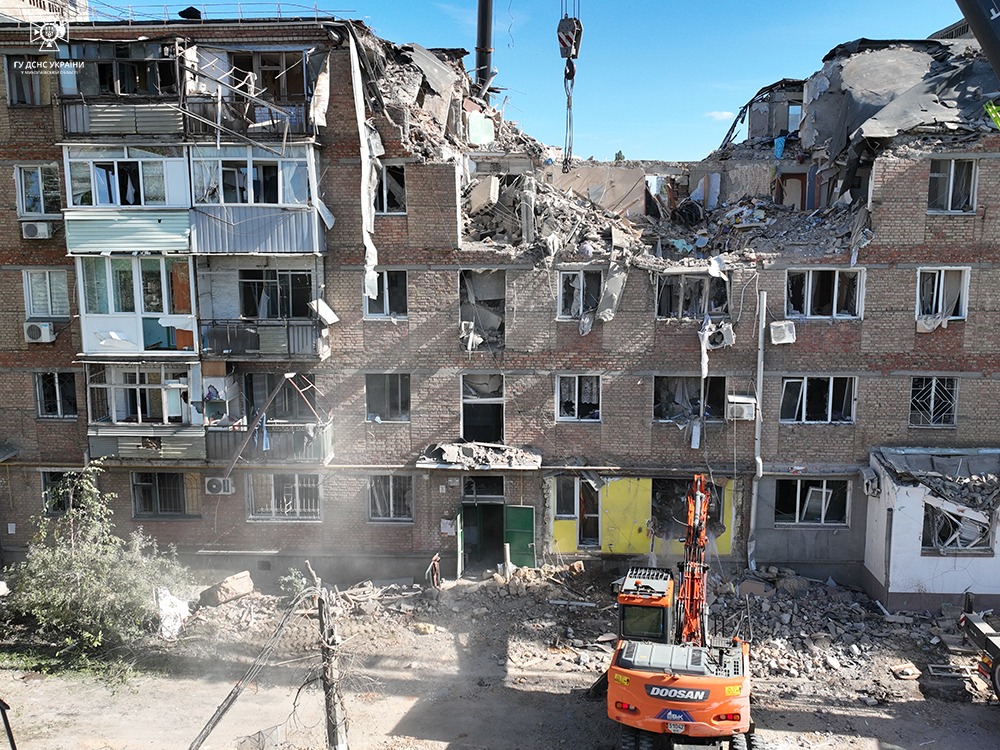
On the 13th, I went to my parents’ to pack my things. That night, I started having contractions. It was another hard day because just from 13 to 14 of April, our APU sank the cruiser “Moskva”. And that was good news for all of us. But it was tough for me: the labor was difficult, and I had a cesarean section. There was an air alert while I was in the operating room, but I was under. And during the first day (Thursday, I remember), for the first 36 hours after my labors, I went down to the basement 12 times.
It was like this: the midwife took the baby, the husband took the bedclothes for himself and me, and things for the baby. He carried a bag, and I, holding my belly, went down the stairs.
On the morning of April 15th (it was Friday, and we were in the ward at 6 am), we were woken up again by explosions. The sounds clearly showed that the “Caliber” had hit. And later, I learned from my mother where it hit: it was a critical infrastructure facility where my parents worked. This was, frankly, the last straw.
The child had jaundice. I now understand why it all started — if there hadn’t been a war, nothing like this would have happened, most likely due to nervous tension. Due to stress, I did not have milk. There was none, although the child had no Rhesus conflict, nothing of the kind. This physiological jaundice (which should pass by itself) has passed into the pathological phase against the background of milk deficiency.
At the time of our departure (it was already the 17th, Sunday), the doctors looked and said: “If suddenly something happens, stop by any hospital.” So they gave us the formula to feed the baby. I don’t know if my husband and I did the right thing then, but we were in extreme panic.
Throughout March, the suburbs of Mykolaiv were shelled from the side of Kherson. We have the Shyroka Balka, Kulbakyne, and Ship districts. The area was bombarded hard for a very long time. This girl (Alina) was from there. A lot of patients were brought from there. One of my husband’s patients, I think the twelve years old boy lost his mother. My husband told me how it all happened.
They had a private house. Beautiful enough: a veranda, an entrance to the house, a corridor, an arch from the front door into the living room, and there was a wall. Moreover, the husband said the distance from the front door to the wall in the living room was five meters. There were four people: Dad and son were around the corner, and Mom (I won’t say for sure, but she was either with her daughter or grandmother) stood in this arch. The boy was also injured in the forearm, but the mother or daughter was crushed to death by metal doors. How can they continue to live?
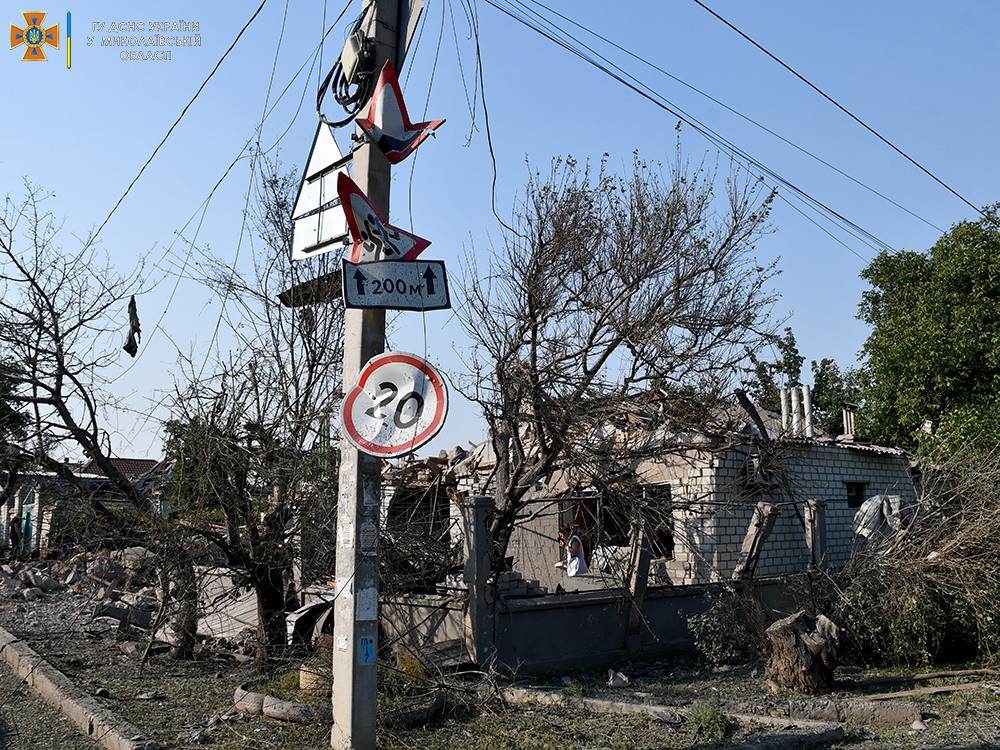
There were also a couple of children. Two girls: one is thirteen years old, and the other is three or four. They were brought in an ambulance. The thirteen-year-old was taken into the operating room; she had several entry wounds in her chest. And the youngest, as my husband said, was punctured so that she bled to death. So she just didn’t make it. And when they began to operate on the thirteen-year-old, they opened the chest and realized that instead of the lungs and the heart, there was just some kind of [mush] ... There was no anatomy there.
A mother came with a nine-year-old child and stayed here. They are from a small village in the Kherson region. They came in the summer, it seems, in mid-June. They fled from there in such horror. And then I realized why. The child told what he saw with his own eyes. He said that the first thing the Russians did was to look for veterans of the ATO [Anti-Terrorist Operation]. If found, they tied them to armored personnel carriers and dragged them around the city. They dragged them along the road. He said body parts fell off them. This child saw it with his own eyes.
There was a girl Sofiia, 13 years old, and a boy, Nikita. I remember them too. These children were evacuated with their mother and father from the territory of our region, which was then occupied. I don’t know whether it was Snegurovka or something in that area.
They were driving on a dirt road, and they were just shot. Mom was killed, and the father (with injuries) somehow found the strength to go further.
The child had a very complex injury, a neurosurgical injury. Our neurosurgeon operated on him. His father had complicated injuries. He went to an adult hospital. This child had a grandmother, and we communicated with her from time to time. Maybe, they were from Snihurivka because the father was initially in the hospital in Snihurivka. And about a week later, he was taken out of there. What is more, they were taken out by volunteers — at night, without headlights. This is how our people fight for their right to life.
 The article was prepared by the Kharkiv Human Rights Protection Group with the support of the "
The article was prepared by the Kharkiv Human Rights Protection Group with the support of the "